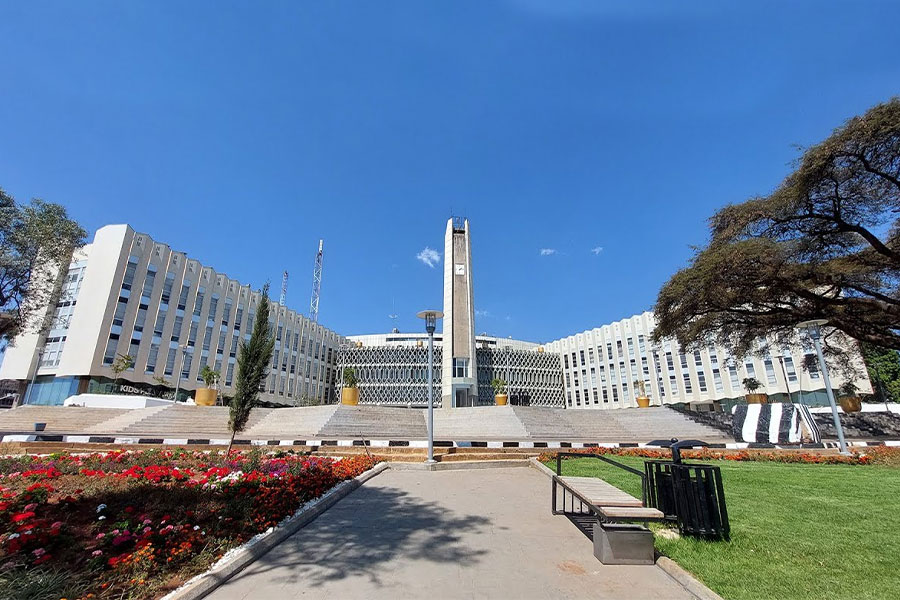
Radar | Dec 28,2019
Finance Minister Ahmed Shide (left) and Seleshi Bekele (PhD) (centre), minister of Water, Irrigation & Energy, walk President Sahle-work Zewde out as she leaves the hall of the United Nations Economic Commission for Africa (UN-ECA) on Menelik II Avenue. She has just opened a meeting with diplomats based in Addis Abeba to discuss the 10-year national development plan drawn up by the Planning & Development Commission.
“After many years of economic growth, we still face staggering economic challenges,” the President said, standing behind the dais inside the ECA’s main hall, addressing spread out crowd of seated diplomats.
The President left the meeting shortly after the speech, leaving the platform to Fitsum Assefa (PhD), head of the Planning Commission. She went into great detail briefing the diplomats on the country's structural challenges, the lessons it has learned, and the path forward the government has in mind.
“Considering our challenges with low productivity and competitiveness, the countries and institutions these diplomats represent can support us,” Fitsum told the media.
Recently, the Commission has released the document outlining the much-anticipated plan. While it sees a different path to development than government-centric growth, like the Growth & Transformation Plans (GTPs), it is just as ambitious. On the macroeconomic front, it plans to reduce annual inflation to seven percent, expand the gross domestic product (GDP) to 10pc every year and further reduce the economy’s dependence of the agricultural sector.
The plan, drawn up after each ministry prepared their own, has been criticised for not being sufficiently inclusive, but it is now being moved by the Commission into the next stage. The agency is preparing guidelines for implementation, monitoring and evaluations. It also answered a question diplomats emphasised — whether regional states would also develop their own plans, citing that decentralisation remains among the Commission's focuses.
PUBLISHED ON
Jan 30,2021 [ VOL
21 , NO
1083]

Radar | Dec 28,2019

Commentaries | Oct 24,2020

Fortune News | Feb 03,2024

Commentaries | Feb 17,2024

Radar | Jun 21,2025

Dec 22 , 2024 . By TIZITA SHEWAFERAW
Charged with transforming colossal state-owned enterprises into modern and competitiv...

Aug 18 , 2024 . By AKSAH ITALO
Although predictable Yonas Zerihun's job in the ride-hailing service is not immune to...

Jul 28 , 2024 . By TIZITA SHEWAFERAW
Unhabitual, perhaps too many, Samuel Gebreyohannes, 38, used to occasionally enjoy a couple of beers at breakfast. However, he recently swit...

Jul 13 , 2024 . By AKSAH ITALO
Investors who rely on tractors, trucks, and field vehicles for commuting, transporting commodities, and f...

Oct 11 , 2025
Ladislas Farago, a roving Associated Press (AP) correspondent, arrived in Ethiopia in...

Oct 4 , 2025
Eyob Tekalegn (PhD) had been in the Governor's chair for only weeks when, on Septembe...

Sep 27 , 2025
Four years into an experiment with “shock therapy” in education, the national moo...

Sep 20 , 2025
Getachew Reda's return to the national stage was always going to stir attention. Once...